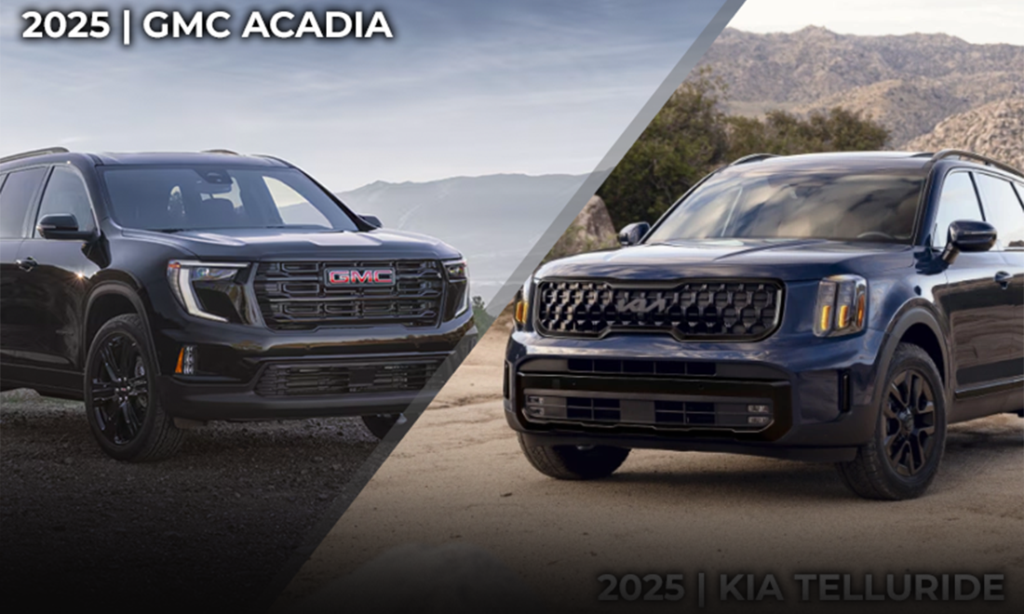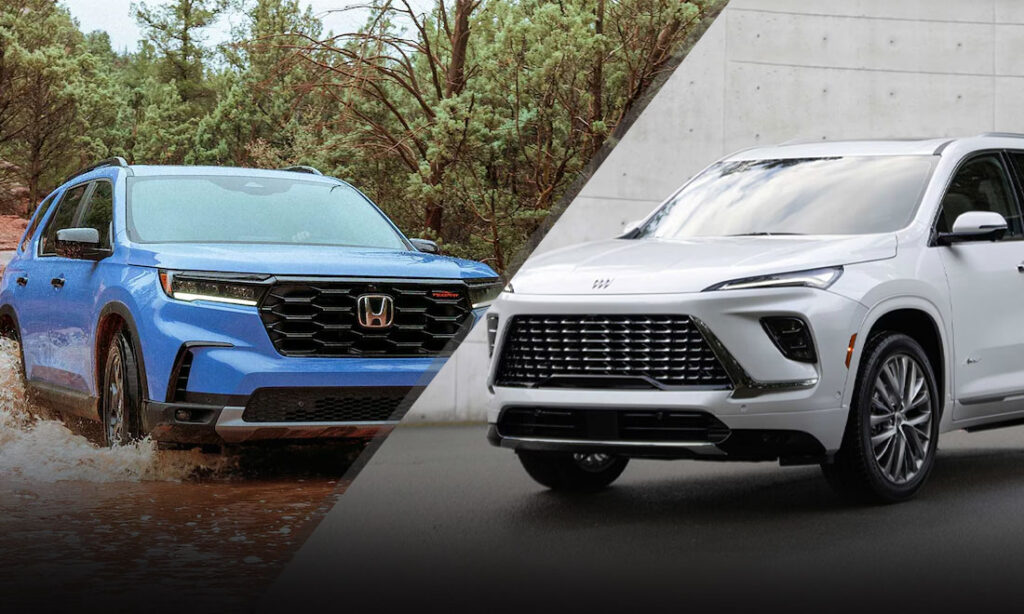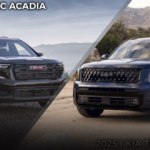Dodge Hornet vs Alfa Romeo Tonale
It’s America versus Italy in this 2024 Dodge Hornet vs Alfa Romeo Tonale comparison of two small badge-engineered crossovers.
Corporate Crossover
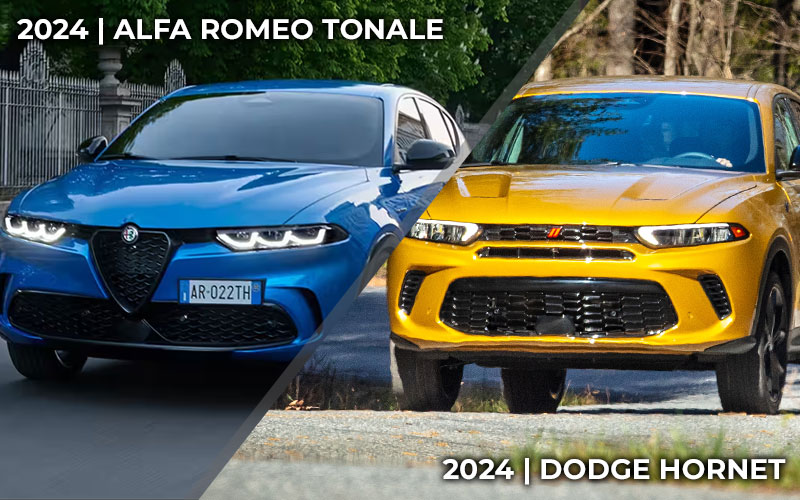
Dodge and Alfa Romeo make for interesting corporate cousins. One has just written the final chapter of an all-American V8-powered muscle car bonanza. The other is an elegant Italian that has also had it’s share of hot rod rear-wheel drive sports cars, but with a focus on class instead of brash.
What these Stellantis brands share today, however, is a new focus on electric power and crossovers. Which is where this 2024 Dodge Hornet vs. Alfa Romeo Tonale comparison comes in. These blatantly badge-engineered twins represent the new future of two storied brands and one that, at the moment, is all about small SUVs.
Though the Tonale is brand-new this year, the Hornet arrived one year earlier. It’s hard not to spot the similarities of these Italian-American twins, though Alfa gets the nod for better component names like the V Scudetto front grille, Trilobo headlights, and Cannocchiale instrument panel. Those aren’t the only differences in this Dodge Hornet vs. Alfa Romeo Tonale matchup, but it’s not far off as we’ll look at below.
Specs
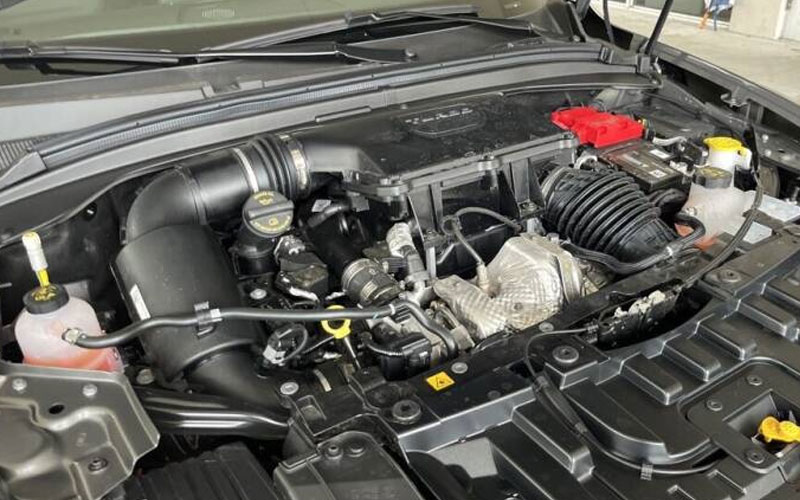
With the 2024 Dodge Hornet, buyers can choose from GT models with a 2.0L turbocharged inline-4 or R/T models with a 1.3L turbo four plug-in hybrid (PHEV) powertrain. The GTs make 268 horsepower and 295 lb-ft of torque paired with a 9-speed automatic good for 24 mpg combined. With the R/T, there are 288 hp and 383 torques on tap, when PowerShot mode is engaged, and a 6-speed automatic handles shifting duty.
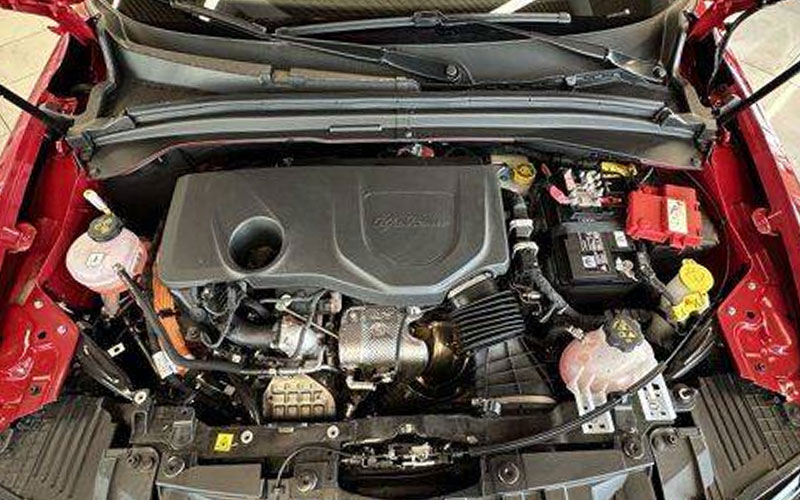
Alfa fits the Tonale exclusively with the same PHEV setup from Dodge, but does not offer a PowerShot-type mode, so output tops out at 285 hp and 350 lb-ft of torque. Across the board, all-wheel drive with torque vectoring is standard. The plug-in hybrid motor, which offers a worthy alternative to EVs, is common to both crossovers and offers 32 miles of battery-only driving range.
Driving and Performance
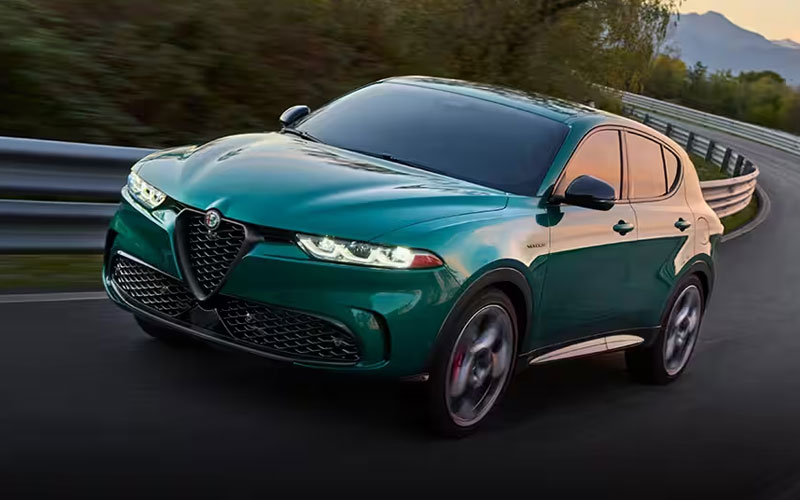
Familial sharing between the Hornet and Tonale continues on the chassis. Both ride on an independent suspension with available adaptive dampers and the option for beefed-up Brembo brakes. You’ll find 8 inches of ground clearance and 2,000 pounds of max towing across the board, the latter of which points to a design intent centered more on commuting than weekend adventures.
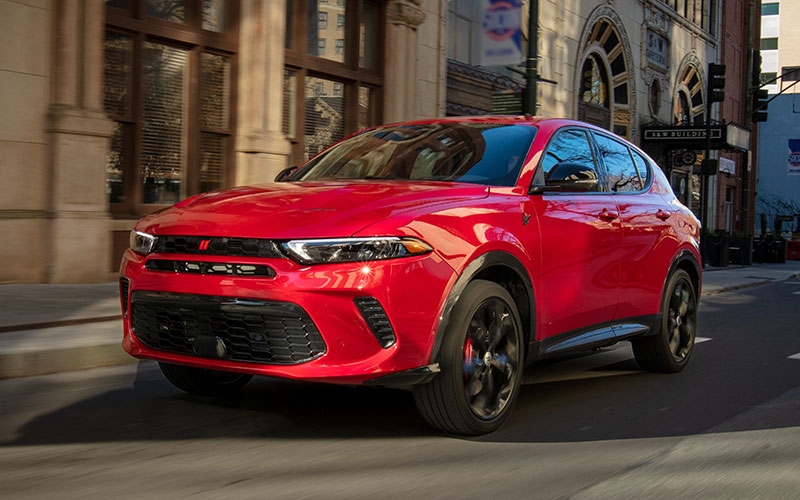
No matter the model, quickness is a common trait in this Dodge Hornet vs. Alfa Romeo Tonale comparison. Hornet GTs can do the 0-60 mph sprint in 6.5 seconds according to Dodge. Alfa Romeo reports the Tonale slightly beats that acceleration with a 0-60 mph time of 6 seconds.
Comfort and Interior
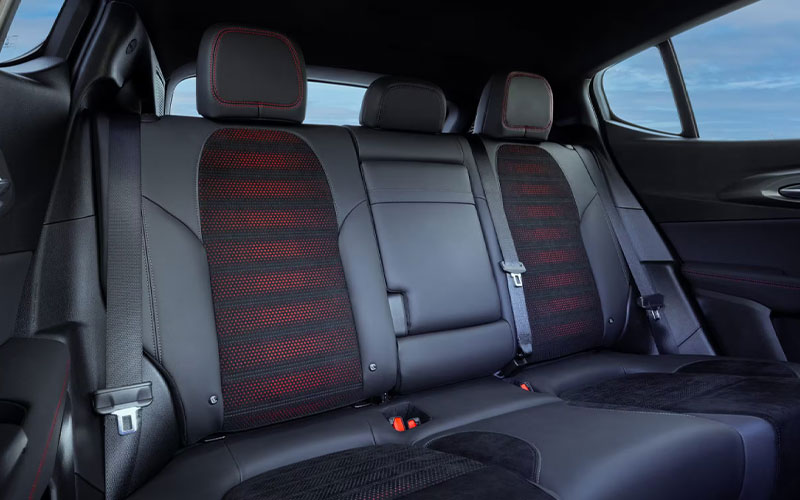
As you’d expect, cabin space is identical for the PHEV Hornet and Tonale with 38 inches of rear legroom and 50 cubic feet of cargo space with the second row of seats folded down. But only the Hornet offers up to 55 cubic feet of max cargo volume when fitted with the standard engine. Turns out that battery pack chews up valuable hauling real estate.
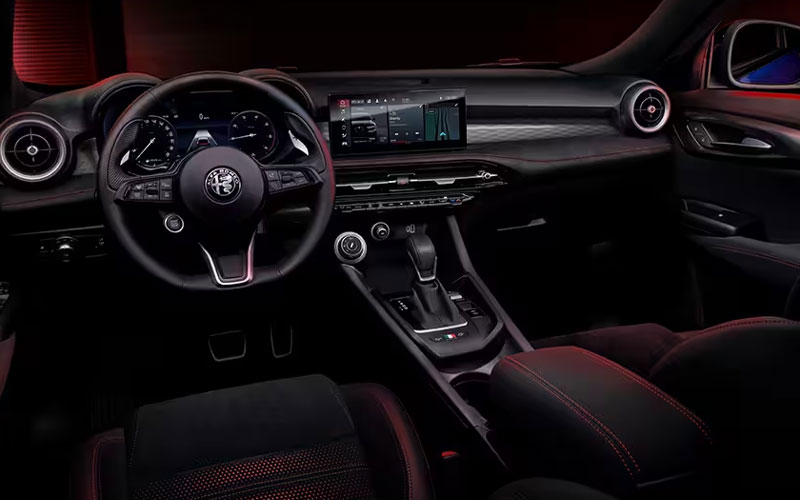
It’s a handsome cabin, in either crossover, with plenty of standard brightwork and the same 3-spoke steering wheel. In fact, aside from differently shaped HVAC vents – which is part of the common dual-zone automatic climate control system – and the brand logos, you’d be hard-pressed to realize you’re in a different vehicle. In both the Dodge and Alfa, cloth is standard as is a digital instrument display, a 10.25-inch central touchscreen, wireless Apple CarPlay and Android Auto, and a 6-speaker stereo system.
The roster of standard advanced driver-assistance systems is largely identical on both models as well. Highlights include forward collision mitigation, a lane-keeping system, blind-spot monitoring with rear cross-traffic alert, adaptive cruise control, automatic high beams, and traffic sign recognition. One of the few differences is that the Tonale comes with a driver-attention monitor, while the Hornet does not.
Trims and Features
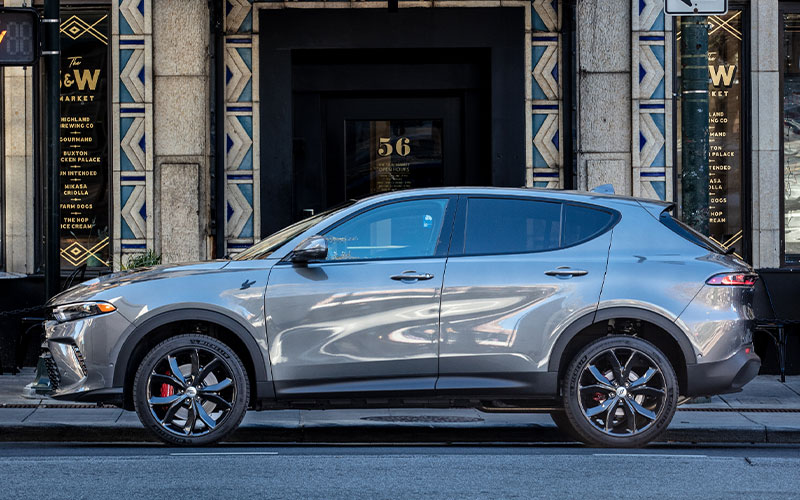
If you really want to find major differences in this Dodge Hornet vs. Alfa Romeo Tonale comparison, look to the price tags. A 2024 Hornet GT starts at $32,330 and comes with 17-inch wheels, heated side mirrors, full LED exterior lighting, and rain-sensing wipers.
In the $37,330 GT Plus trim, the Hornet receives a sunroof, a hands-free liftgate, leather upholstery, climatized front seats, a 14-speaker Harman Kardon audio system, and a wireless phone charging pad. A true apples-to-apples comparison, however, requires at least a Hornet R/T as it shares the PHEV powertrain found in every Tonale.
For the Dodge, this means a starting price of $42,530 and the addition of 18-inch wheels, Brembo brakes, and fancier seating on top of the GT content. Range-topping Hornet R/T Plus models come in at $47,530 and blend the GT Plus amenities with the PHEV powertrain along with options for Active Driving Assist, self-parking, and a surround-view monitor.
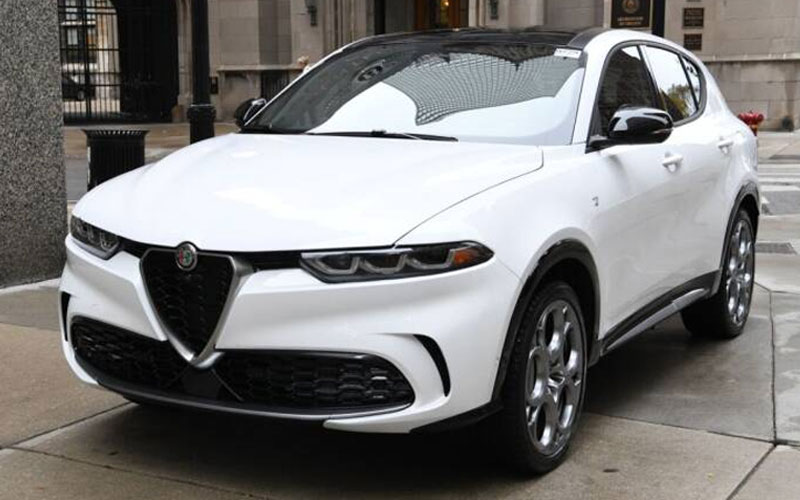
Over at Alfa, $44,940 gets you into a base Tonale Sprint. It matches the base Hornet GT, but adds adaptive headlights, 18-inch rims, heated front seats, and a navigation system. For $47,935, the Tonale in Ti trim is similar to a Hornet GT Plus, but the sunroof and upgraded audio system require $3,700 in packages.
A top-line Tonale Veloce comes in at $49,435 for which you get 19-inch wheels, adaptive dampers, Brembo brakes, and Alcantara seat trim. And yet, these models still come standard with a 6-speaker stereo and require a package for the upgraded driver safety systems. Tick all the option boxes, including a $2,000 green paint job, and the sticker balloons to nearly $58,000.
The Verdict
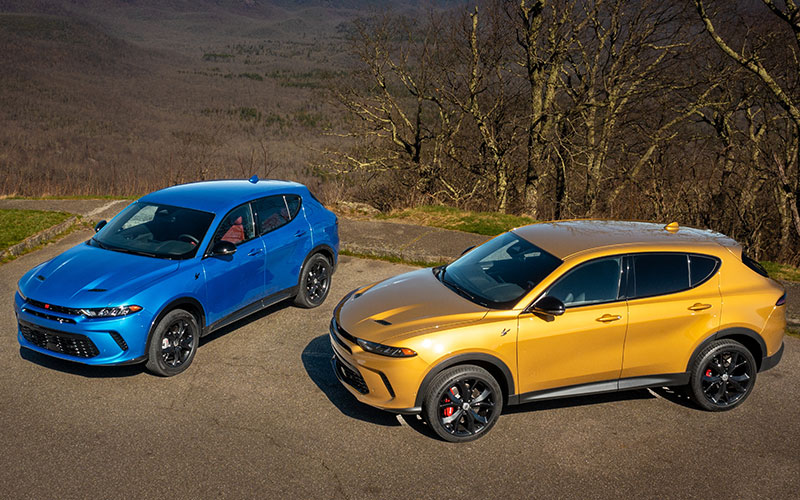
So, which small crossover is the better bet in the Dodge Hornet vs. Alfa Romeo Tonale conversation? Before we get to that answer, it’s important to note that although a Tonale approaches $58,000 when fully loaded, the Hornet can get equally bloated with a price tag of over $54,000 with all the bells and whistles.
That said, the only reason to buy an Alfa Romeo Tonale over the Dodge Hornet is so you can drive a vehicle with an Alfa emblem. And admittedly, it is far more interesting than Dodge’s badging. Also, some may prefer the looks on the Tonale – it does have a different grille and lighting shapes after all – but that’s subjective.
However, objectively, the Hornet gives you all the same content as the Tonale, including a more powerful PHEV powertrain, for less money across the board making it the hands-down winner of this matchup.


